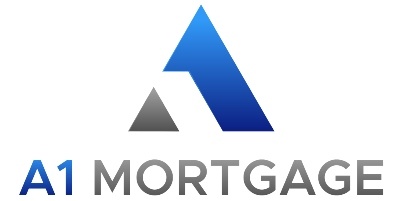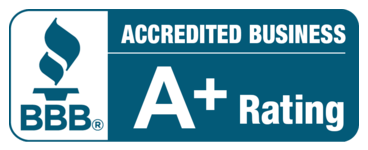The Loan Process
Learn about the A1 Mortgage process and plan for the future!
The A1 Mortgage Home Loan Process
These are the fundamentals of how the A1 Mortgage loan process works. All loans follow this process regardless of the type of loan sought. An important step in the course of loan processing work is the credit review and employment verification, which are performed once an application is completed. Supporting documents such as tax returns, W2s, pay stubs, bank statements, and/or investment records are often required to complete this step.
The mortgage loan application form asks for detailed information about you and the property you wish to buy, and requires documentation about your personal finances. The lender will examine this information as well as your credit history, and you are then ready to move down the pipeline of the mortgage loan process.
Along the way, we will need to collect several documents from you to provide to the underwriters. Additionally, the underwriters can and often do ask for additional documents during underwriting.
Let’s Simplify the Home Mortgage Lending Process:
Application
There are two application forms: the “short form” application and the “long form” application. The short form application is the application form used on the website; it provides the quick essentials of your mortgage application so that we can pull your credit and start the loan process. The long form application is the complete application with more information requirements; this complete mortgage loan application asks for detailed information about you and the property you wish to buy, and requires documentation about your personal finances.
During the application process, you will be assigned a loan officer to originate your loan and help you along the way. Once your loan officer compiles your application documents, selected the proper paperwork for the loan program you requested, and prepares your loan package for processing, the file will be sent to a Processor. The Processor will verify many of the items, such as income, employment, and assets before sending to the Underwriter. This requires phone verifications, and many times the receiving of documentation from your employer. Depending on market conditions and the cooperation of all parties that we make requests to, such as your employer(s), a pre-approval can normally be issued within 24 – 48 hours after all documentation has been verified—and most of the time we can get you approved the same day.
Processing
Once we have compiled your application and the documents needed, selected the proper paperwork for the loan program you requested, and have prepared your loan package for processing, the Processor will take over much of the work on your file.
The Processor will verify many of the items, such as income, employment, and assets before sending to the Underwriter. This requires phone verifications and many times the receiving of documentation from your employer. When applicable, a payoff will be ordered from the current mortgage holders(s), and a Title Search will be run to make sure all liens have been verified. Once this information has been verified, your file will be sent to the underwriter for approval.
Documents needed at application:
- Most Current Pay Stub (30 Days)
- Two Months of Current Bank Statements
- Copy of Driver’s License
- Two Years Recent Tax Returns (All Pages)
- Most Recent Quarterly Statement for Retirement/Investment Funds
Appraisal
The Appraiser’s job is to determine the fair market value of the home you are buying—or your current home if you are refinancing. Appraisers do this by verifying the physical characteristics of the house and land. This will be done through a personal inspection of the property to verify its condition, square footage, room count, construction materials used (brick, siding, etc.), and acreage. The appraiser will contact you to schedule the appraisal if it is a refinance, or contact the seller if it is a purchase. The cost of an appraisal for a single family home usually remains fairly standard, provided the property is not rural, hard to access, or of unusual size or acreage. The amount must be paid in advance, as appraisers are third party contractors and not part of our company.
Underwriting
The Underwriter is ultimately responsible for approving your home loan. Prior to submission to the Underwriter, we have already received a conditional approval from our automated underwriting system. The “live person” underwriter must verify and qualify your income, credit, cash reserves, and the property itself. If everything meets the guidelines stated for the program, a conditional approval will be granted, which will list the remaining items needed for the lender to issue funds to close the loan. In the home loan process, it is extremely important that the underwriter has all the documentation that builds a strong financial picture, because an underwriter’s job is on the line with every loan they approve. Therefore, if the Underwriter requests additional information, it is imperative that we provide it immediately.
Lock Your Rate
Mortgage loan rates may change daily. To ensure that you receive the rate you were quoted, you may elect to lock in your rate by paying an up-front authorization fee. Your loan officer will educate you on the locking of the rate and provide all available options and loan programs.
Escrow and Title
A title company will hold the money and documents until all conditions are satisfied. Title work will be prepared, including a title exam to ensure the title to the property is clear. Other title documents such as the mortgage note and deed will be prepared.
Closing & Signing
There are costs associated with processing and closing a mortgage loan, such as application fees, points, title, insurance, and credit processing. A closing agent will prepare and send loan closing documents package to the closing company and wires loan funds to the closing agent. When budgeting for your new home purchase, be sure to factor in closing costs (this cost will be provided to you in our free good faith estimate).
The documents will be sent to a title company for you and the seller to sign. Funds such as any remaining down payment and closing costs will be due at this time. Mortgage closing costs normally include such items as appraisal fees, title exam, settlement fees, title insurance, credit report fees, and application fees.
Funding & Title Transfer
When all funds are collected and the contract has been verified, the title is transferred and the purchase price funds are disbursed to the seller. After this step, you can take over the keys to your new home—congratulations!




